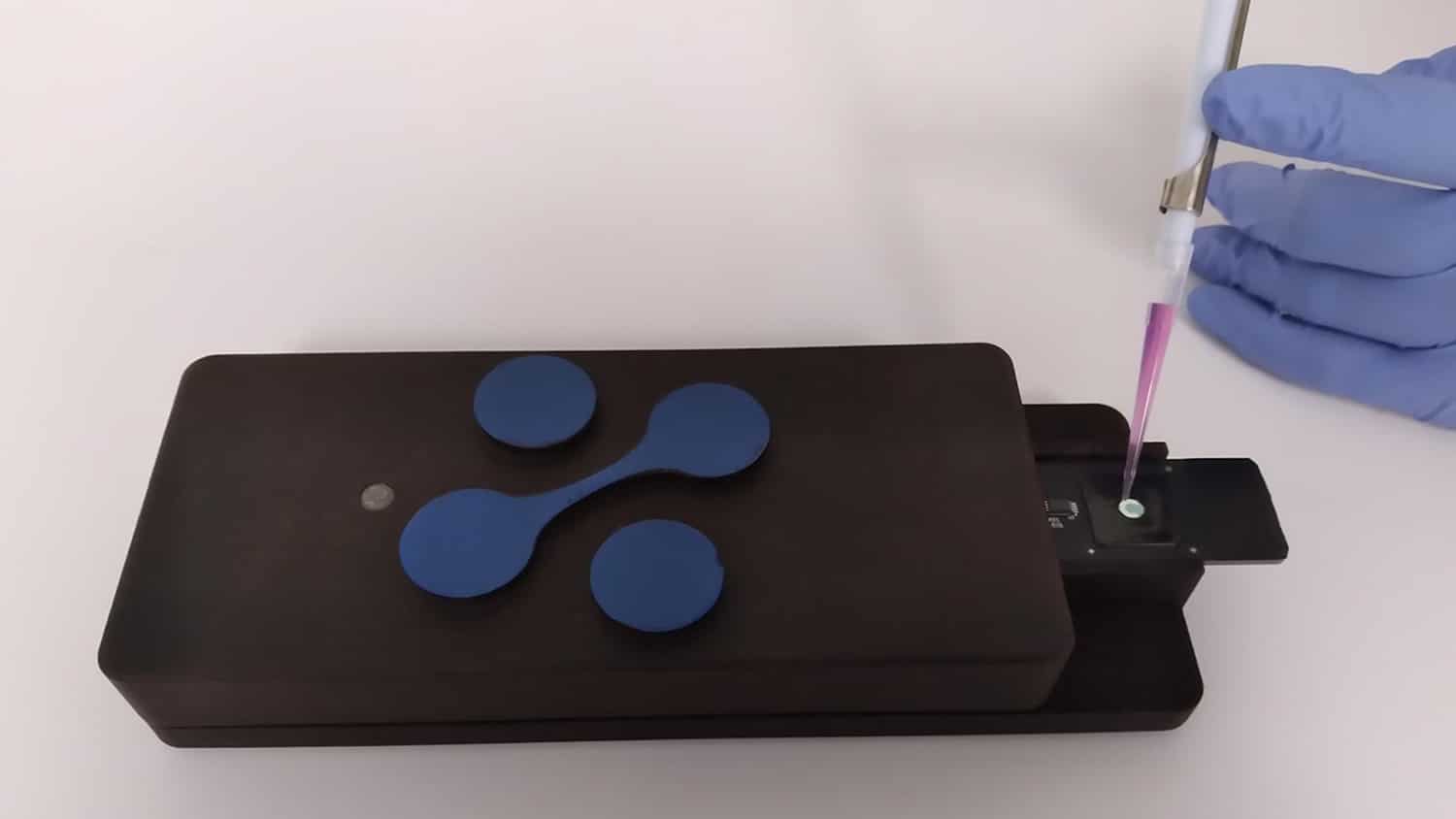
Detection of target genes with single-nucleotide specificity requires simple and fast methods. Such methods could lead to simple and quick methods.
Recently, scientists from the Keck Graduate Institute (KGI), UC Berkeley and Vilnius University demonstrated new disease-detection capabilities of a hand-held device called CRISPR-SNP-Chip. Developed using CRISPR gene-editing technology, the device could accurately detect single nucleotide polymorphisms (SNPs) or point mutations in sickle cell and ALS diseases without the need to amplify the DNA.
Study principal investigator Kiana Aran, an assistant professor at KGI and a visiting scientist at UC Berkeley’s Department of Bioengineering, said, “By eliminating the need for amplification and large optical instruments, our SNP-Chip will make SNP genotyping for these purposes readily accessible. The ability to detect SNPs on a chip does not just get to the core of human health genetics; it also gives us valuable and actionable insight into areas like agriculture, industrial bioprocesses, and even evolutionary change, such as mutations conferring resistance to antibiotics.”
Irina Conboy at UC Berkeley and Virginijus Šikšnys at Vilnius University in Lithuania said, “This technology innovates the field of CRISPR diagnostics and opens an avenue for accurate digital detection of genetic diseases, even when only one copy of a gene is mutated and only in one nucleotide. This is also a new platform to quickly and conveniently optimize CRISPR machinery, reducing the need for tests in cells and in vivo.”
Along with CRISPR-Cas biology, scientists used CRISPR-Cas Biolog electronic transistors made from graphene to detect genetic mutations in minutes. The DNA samples were placed on the chip, and thousands of CRISPR molecules scan for specific mutations.
If CRISPR binds with the target, it creates an electrical charge that is detected by the device.
Virginijus Šikšnys at Vilnius University in Lithuania said, “Merging a diversity of CRISPR-Cas biology with electronics, SNP-chip opens up a whole new range of possibilities for diagnostic and research applications. Using the Cas9 orthologue for SNP detection is just the tip of the iceberg of opportunities.”
Journal Reference:
- Balderston, S., Taulbee, J.J., Celaya, E. et al. Discrimination of single-point mutations in unamplified genomic DNA via Cas9 immobilized on a graphene field-effect transistor. Nat Biomed Eng (2021). DOI: 10.1038/s41551-021-00706-z
Continue reading New hand-held device to detect point mutations in sickle cell and ALS diseases on Tech Explorist.
0 comments:
Post a Comment